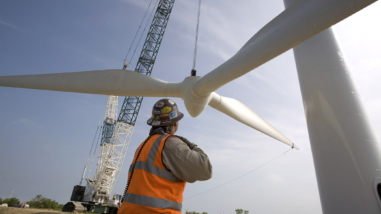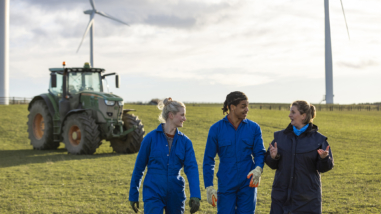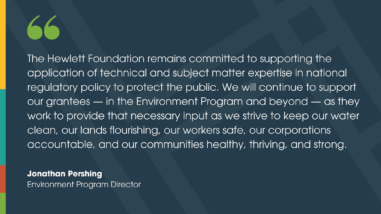Boston University
For The Institute For Sustainable Energy's Role Of The Grid On The Path To 2050 Project
-
Amount$30,000
-
Program
-
Date Awarded11/3/2016
-
Term12.0 Months
-
Type of SupportProject
Overview
This is a grant to develop materials to train our grantees on the types of changes that are needed in the utility sector to dramatically reduce carbon emissions. Trainings in Washington, DC, and San Francisco will focus on utility business models, the role of distributed resources, and wholesale market design.
About the Grantee
Grantee Website
www.bu.edu
Address
881 Commonwealth Avenue, Boston, MA, 02215, United States
Grants to this Grantee
for the Global Development Policy Center
Founded in 2017, the mission of the Boston University Global Development Policy Center is to advance policy-oriented research for financial stability, human well-being, and environmental sustainability. This grant will help the center conduct strategic analysis that can enable a low-carbon South-South cooperation and identify pathways under which China’s ambitious pledge to promote renewable energy development in the Global South can become a reality. The project will also identify what investments by philanthropic entities would be necessary to maximize the opportunities and minimize the risk of inaction. (Substrategy: China National Policy)
for support of the Africa POWER Consortium
This grant to Boston University’s Program on Women’s Empowerment Research (POWER) will support the establishment of the Africa POWER Consortium with an aim to fill critical research-policy gaps in service delivery and policymaking on issues related to gender, women’s empowerment, and women’s well-being in Africa. The consortium leverages and consolidates the expertise of global and African institutions that operate at the frontier of research, policy, and advocacy — specifically Boston University, the African Institute for Development Policy, IDinsight, AidData, and the EconInsight Center for Development Research. During this planning phase, the consortium will incubate multi-institutional approaches to promote women’s empowerment research, evidence use, and policy influencing. (Strategy: Global Reproductive Equity and International Women’s Economic Empowerment)
for the Global China Initiative’s data analysis for transparency and accountability
The mission of the Global China Initiative at Boston University’s Global Development Policy Center is to conduct policy-oriented research that reveals pathways for the Belt and Road Initiative to foster a more stable, socially inclusive, and environmentally sustainable world economy. The initiative’s data analysis for transparency and accountability provides a valuable public good, inside and outside of China. (Substrategy: China National Policy)



